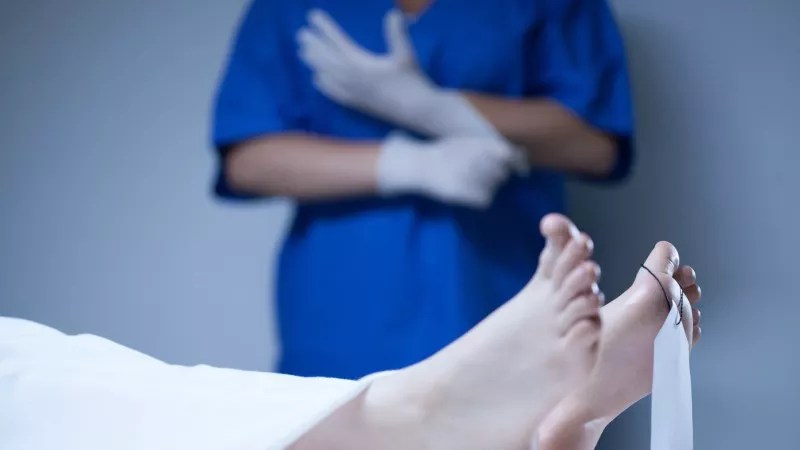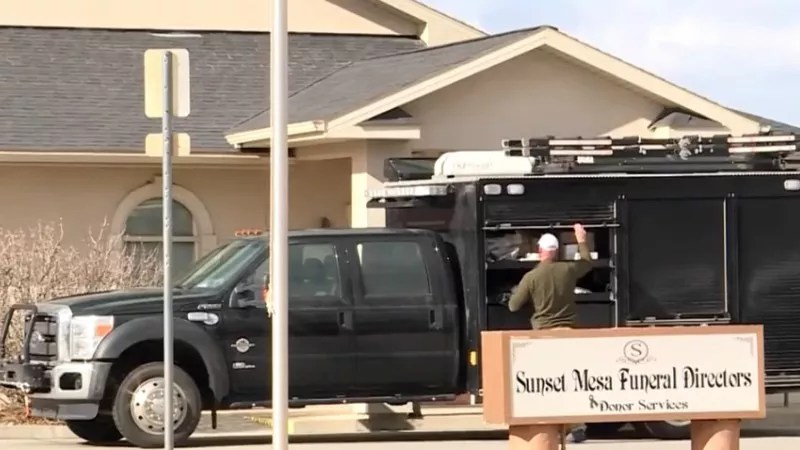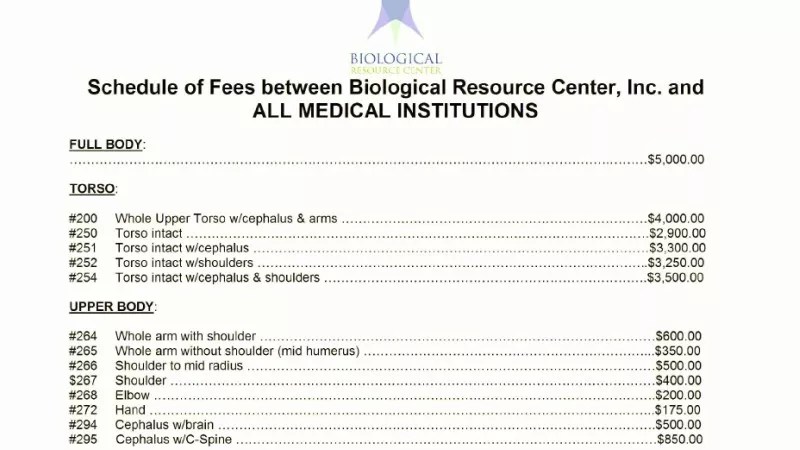
Getty Images

Audio By Carbonatix
The price list from Biological Resource Center Inc. offered a variety of options for the connoisseur of human body parts. A customer wanted an elbow? That would be $200. A whole arm and shoulder cost just $400 more. For those with more money to spend, a torso with head (referred to as a “cephalus”) went for $3,300. And an entire cadaver was available for the bargain price of $5,000.
According to attorney Michael Burg of the Denver-based law firm Burg Simpson, BRC Inc. has disputed the suggestion that it illegally sold human body parts for profit by maintaining that these dollar amounts were merely service fees.
But he considers this explanation to be “a farce” – which is one reason why he’s happy about a new Colorado law, the first of its kind in the country, that’s intended to prevent such practices from taking place here.
But Burg sees the measure, known as the Human Remains Disposition Sale Businesses Act (it’s accessible below along with a full copy of the BRC list), as more of a move in the right direction than a solution to the problem of body brokering, and he hopes the state legislature toughens it up down the line.

Scenes from the raid of a body parts facility in Phoenix circa 2016.
In the meantime, he’s working toward filing a lawsuit against a Montrose business that he believes peddled non-transplantable body parts using a price list, too.
Burg makes a distinction between body brokers and firms that specialize in harvesting organs for transplant.
“Organ donation is really a good thing,” he says. “If someone, unfortunately, dies, if they have a heart or liver or eyes that can then be transplanted into someone who needs them, it can save their lives. But even though body brokers compare themselves to organ donation companies, they’re really body snatchers – and they don’t even have to dig up the bodies.”
Such firms “go to hospitals and hospices and give their pitch to people when they’re at their most vulnerable,” he goes on. “They’ll think, ‘My mother just died of Alzheimer’s. I want her brain to help doctors learn how to prevent this terrible disease.’ But what these companies really do is get the body and chop it up and sell the parts all around the country. They sell the heads, arms, legs, hips, genitalia. We have discovered that many of these bodies are sold to the Department of Defense and are blown up like crash-test dummies.”

CBS4 via YouTube
Body brokers have operated in various parts of the country, and Burg Simpson is involved in lawsuits related to several of them. Examples include Biological Resource Center of Arizona, whose owner, Steve Gore, pleaded guilty to taking part in a criminal enterprise back in 2015, and International Biological, a Detroit enterprise that saw its owner, Arthur Rathburn, earn a nine-year prison sentence in May following a guilty plea by his ex-wife, Elizabeth Rathburn.
The case against Megan Hess strikes much closer to home. Hess allegedly ran a body brokerage and the Sunset Mesa funeral home out of the same Montrose building – at least until February, when the FBI conducted a raid. Discoveries noted by Burg include revelations about supposedly cremated human remains returned to donors.
“It was actually powdered cement,” he says. “There were no remains. In fact, one woman decided to dig up the remains of her husband, and there was nothing in the casket.”
Other body brokers appear to have done a little better, but not by much; Burg references instances “where they cremate a foot and give that back to you and sell everything else.”

A screen capture showing part of the Biological Resource Center body-parts price list.
The Human Remains Disposition Sale Businesses Act, which went into effect earlier this month, was directly inspired by the Sunset Mesa setup. It forbids a person from owning more than 10 percent indirect interest in a funeral home or crematory while simultaneously owning interest in what’s termed a “non-transplant tissue bank” – i.e., a body broker. It also requires such tissue banks to register with state regulators and keep records that are available to interested parties, among other things.
That’s all good and well, but Burg doesn’t think the law is strong enough. In his opinion, “If you defraud someone out of their loved one’s body and then you desecrate it by cutting it up, or if you commit fraud to obtain the body, we believe that should be a felony. We have numerous experts in the field who’ve studied this, as well as psychologists who work with our clients, and they believe people suffer from PTSD that arises from this. When they’re told by these brokers that they’ll treat their loved one with dignity and use the body for science only to find out later that it was kept in freezers and parts were shipped around the world really causes tremendous psychological and emotional depression.”
In his view, “having any kind of a law on the books is a great first step. But we believe more needs to be done. I don’t care if you’re a Republican, a Democrat or an independent: We all can agree that we need to protect people’s loved ones from this kind of deceit.”
Click to read the Human Remains Disposition Sale Businesses Act and the Biological Resource Center body-parts price list.